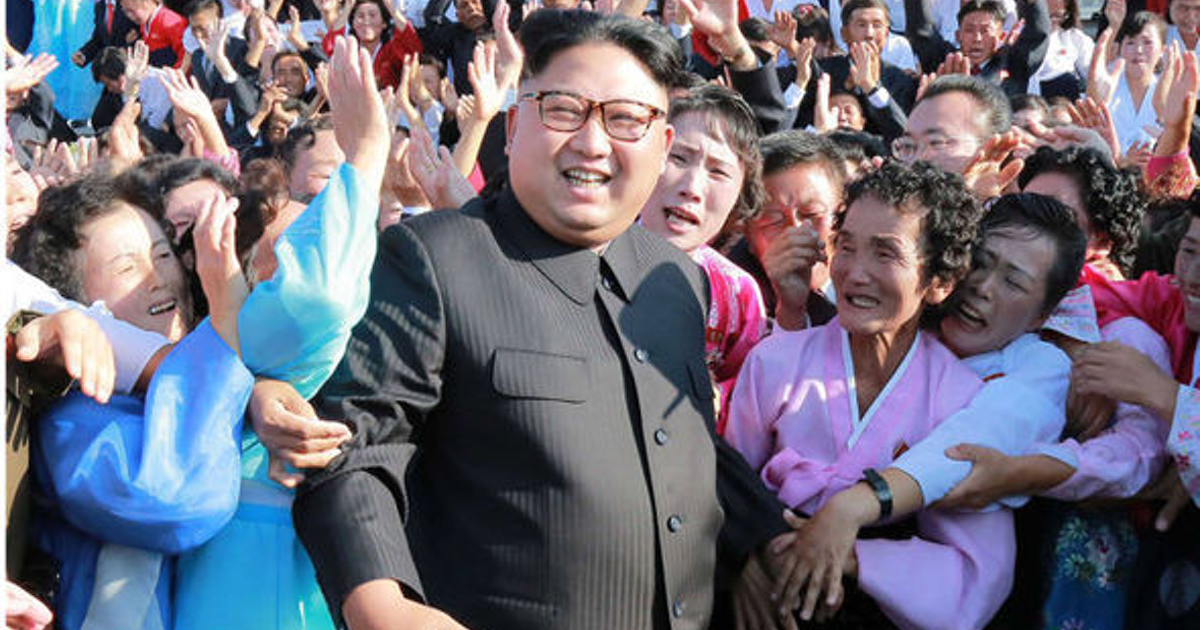|
By Jacob G. Hornberger
U.S. officials, led by President Trump, and accompanied by their acolytes in the U.S. mainstream press, are absolutely giddy over what they perceive as the success of U.S. sanctions against Iran and North Korea. With Iran, they are celebrating the fact that horrific economic conditions have led to sporadic protests across the country against the Iranian regime. With North Korea, they are saying that U.S. sanctions are starting to “bite,” which, they say, is what has caused North Korea to reach out to South Korea in diplomatic talks regarding North Korea’s participation in the Winter Olympics. The mindset of these people perfectly reflects Hannah Arendt’s phrase “the banality of evil.” In fact, with the possible exception of government programs like MKULTRA or syphilis experiments against unsuspecting African-Americans, it would be difficult to find anything more evil than the system of sanctions that has long been a core element of U.S. foreign policy. Let’s begin with North Korea. As a communist state, the government owns everything, and 99 percent of the citizenry works for the government. That means that every North Korean family’s survival depends on food, housing, healthcare, and a paycheck from the state. If the government has no money, then that means people starve to death because the government is their sole source of sustenance and income. Thus, to feed and sustain everyone, the government must come up with ways to collect revenue, for example, by heavily taxing North Korean workers who are permitted to work abroad or by engaging in some state enterprise. This is what socialism, in its purest form, is all about — the government taking care of people, not just with programs like Social Security, public schooling, subsidies, and Medicare, like here in the United States and taxing the productive citizens to pay for them — but rather in a total and complete manner, with the government owning everything and taking care of everyone, and with virtually everyone being an employee of the government. In North Korea, there is widespread equality insofar as wealth is concerned (which, of course, is a cherished goal of American socialists) because everyone is equally poor, desperately poor because of their socialist economic system. There is also in North Korea what Mises called “planned chaos.” That’s because central planning and state control of economic activity is inherently defective, given there are no free-market prices with which the planners are able to calculate when formulating their central economic plans. So, what is the aim of U.S. sanctions? The aim is to deprive the North Korean regime of revenues in the hopes of causing North Korean families to suffer even more than they already are suffering from socialism. Ideally, the aim of the sanctions is to kill ordinary North Koreans through starvation, which will then bring anger and dissatisfaction, which, presumably, will then bring down the regime and have it replaced with a pro-U.S. regime. That is the ultimate aim of U.S. sanctions — regime change. That’s the aim in Iran, North Korea, Cuba, Russia, and everywhere else that the U.S. has imposed sanctions. Alternatively, the aim is to force the targeted regime to accede to whatever the U.S. government wants. (All this from a regime and a mainstream press that prattles on about Russia’s supposed interference with America’s political system.) There is one important thing to keep in mind: the pawns in this scheme are the ordinary people — the families — the fathers, mothers, grandparents, children, grandchildren. They are the ones who U.S. officials are trying to kill as a way to achieve regime change in the targeted country. This phenomenon of evil was manifested perfectly in 1996, when U.S. Ambassador to the United Nations, Madeline Albright, was asked by “Sixty Minutes,” whether the deaths of half-a-million Iraqi children were “worth it.” What “Sixty Minutes” was referring to was the sanctions that U.S. officials had imposed and enforced against Iraq ever since the U.S. intervention in the Persian Gulf War. Like with North Korea, Iran, Cuba, and Russia today, the aim of the sanctions against Iraq was regime change. U.S. officials wanted to get rid of Saddam Hussein, who, ironically, had been their partner and ally in the 1980s when Saddam was killing Iranians in the Iraq-Iran War, and replace him with a pro-U.S. ruler. To achieve that goal — regime change — U.S. officials imposed one of the most brutal sanctions systems in history, one that, naturally, targeted Iraqi families. The combination of Iraq’s socialist economic system and the U.S. sanctions, along with the Pentagon’s intentional destruction of Iraq’s water-and-sewage treatment plants in the Gulf War, operated as a vise that squeezed the economic lifeblood out of Iraqi families. Those who bore the biggest brunt of the sanctions were Iraqi children, who began dying in masse from malnutrition and infectious illnesses, especially since the sanctions prevented Iraq from repairing the water-and-sewage treatment plants that the Pentagon had intentionally bombed and destroyed during the Gulf War. Thus, in 1996 “Sixty Minutes” asked Albright whether the deaths of half-a-million Iraqi children were “worth it.” Comments are closed.
|
Archives
July 2024
|


 RSS Feed
RSS Feed



